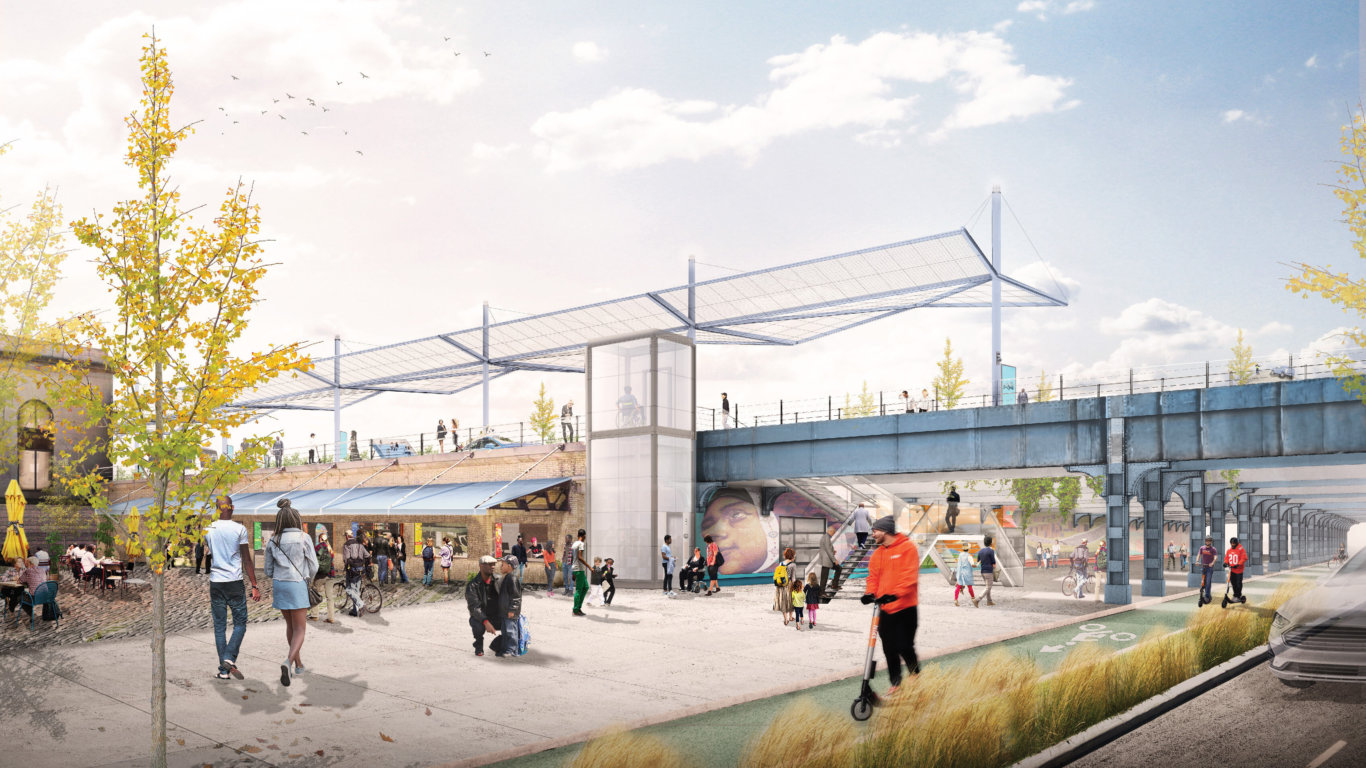
Photo: Vernor Plaza
Ford unveils winners for its Detroit mobility accelerator
24 May 2021
by Christopher Carey
Seven firms have been selected to take part in Ford’s Accessible Streets Studio – a technology business accelerator programme that is helping city-focused startups pilot mobility products in Detroit.
The Studio is led by Newlab, a New York-based innovation lab and business incubator, that has been working with Ford since early 2020 to identify mobility challenges in the city.
The effort is focused on Michigan Central, Ford’s new mobility innovation district in Detroit’s Corktown neighbourhood, and a US$740 million renovation of the abandoned Michigan Central train station, which will anchor a 30-acre ‘mobility campus’ that could bring 5,000 jobs to Corktown and other adjacent neighbourhoods.
“By solving local mobility challenges, we can help connect our communities and build more equitable cities,” said Julie Roscini, who leads the Michigan Central development’s external engagement strategy for Ford.
“The Accessible Streets Studio is laser focused on identifying innovative solutions to help improve urban life for everyone, and it’s fitting that this first cohort is prioritising the diverse neighbourhoods around Michigan Central. We look forward to co-creating the future of mobility with the Detroit community and our innovation partners.”
Open call
In January 2021, the Studio announced an open call for companies developing frontier technologies and new products to apply to participate in the first cohort, which will tackle four major challenges faced by Detroit residents.
The four themes, which were uncovered through engagement with Detroit residents, community organisers, policymakers, and researchers, are: bridging transportation gaps, improving access to essential resources, fostering safe and welcoming streets, and ensuring access to timely and relevant mobility information.
The seven inaugural companies in the Accessible Streets Studio 2021 include:
- Soofa: A solar-power startup that builds digital signs with e-ink display. Soofa Signs feature real-time updates on mobility resources, city communication and wayfinding.
- Kiwibot: An autonomous robotic delivery firm.
- Solartonic: which provides solar power and wireless networks to smart communities managed through a remote cloud-based platform – solahub™- that integrates lighting, CCTV, IoT sensors, signage, and Wi-Fi network systems for mobility management and safe streets.
- Numina: A kerb-management platform that measures activity to support urban planning, policy, and operations using anonymous and aggregated volume counts, paths, and traffic behaviours of travellers and objects in streets.
- Lazarillo: A navigation app for people who are blind and visually impaired to navigate the city using audible assistance.
- KUHMUTE: A mobility firm which provides charging for micro-mobility vehicles.
- Sway Mobility: A carshare-as-a-service provider.
In addition to two local companies from Michigan, the cohort represents teams from California, Ohio, Massachusetts, Florida and New York.
Over the coming months, each firm will work closely with Newlab, Michigan Central, Studio advisors, and the community to design and develop plans for the deployment of their technologies and services in local communities.
Image: Practice for Architecture and Urbanism (PAU)











